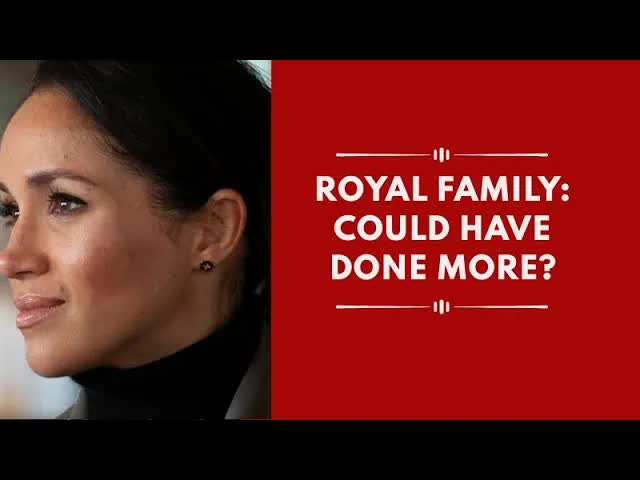In the ongoing saga surrounding Prince Harry and Meghan Markle, a recent discussion has reignited debates about whether the royal family could have done more to support the couple during their tumultuous departure from royal duties.
The term “jettisoned” has been thrown around, suggesting that the royals abandoned Harry and Meghan, but is that really the case?
Many commentators seem to have a rather harsh view on the matter, yet it raises the question: did the couple truly feel abandoned, or were they simply asserting their independence?
It’s essential to recognize that both Harry and Meghan were adults who made their own choices.
The Queen, in her wisdom, understood that trying to control their decisions would only lead to further chaos.
Sometimes, the best course of action is to let individuals carve their own paths, especially when they are capable of doing so.
Reflecting on personal experiences, many can relate to the desire for independence—like leaving home at 19, ready to face the world without looking back.
Critics argue that the royal family didn’t do enough to support Harry and Meghan, but how much support can one provide to those who are determined to go their own way?
Royal commentator Peter Hunt recently suggested that there seems to be a divide between those who support Harry and those who back William, implying that the royal family could have found a middle ground.
But isn’t it true that the roots of this conflict stem largely from Harry and Meghan’s decisions?
The drama surrounding Meghan’s entry into the royal family sparked significant controversy, unlike the relatively smooth transition seen when Kate Middleton married Prince William.
The disruption caused by Meghan’s arrival has led to questions about the royal institution’s role in their departure.
While some believe the royals should have handled the situation differently, it’s crucial to ask if they could have done anything to prevent the inevitable fallout.
The rift between Prince Charles and Harry, as well as between Harry and William, appears to have deepened due to Meghan’s influence.
It’s easy to place blame on external factors, but Harry’s refusal to heed family advice about his relationship with Meghan played a significant role.
The concerns raised by William regarding the speed of Harry’s relationship were valid, yet Harry’s reaction was less than mature.
Many royal observers believe that Harry needs to embrace adulthood and accept responsibility for his actions.
The tension within the family can often be traced back to Harry’s inability to handle honest feedback about his relationship choices.
As he navigates this complex web of familial relationships, it’s clear that he has lessons yet to learn.
Despite the ongoing drama, Harry has committed to releasing a memoir that promises to be an honest account of his life.
However, given the controversies surrounding him, skepticism abounds regarding the credibility of his narrative.
Critics wonder why he feels compelled to air family grievances, particularly during a time when the royal family is celebrating significant milestones like the Queen’s Platinum Jubilee.
As Harry prepares to promote his book, questions arise about his motivations.
Is he truly seeking to share his story, or is he attempting to overshadow the royal family’s achievements?
Some royal watchers worry that his actions might be perceived as malicious, particularly in light of the strained relationships he has with his brother and father.
In a recent tribute to the late Archbishop Desmond Tutu, Harry and Meghan expressed their condolences, reflecting on their past encounters with him.
While their words were heartfelt, there’s a poignant irony in their public displays of compassion against the backdrop of their ongoing familial strife.
Tutu championed forgiveness and love, values that seem distant in the current narrative surrounding the Sussexes.
The real testament to Tutu’s legacy would be for Harry and Meghan to practice the forgiveness he preached.
Instead of merely paying lip service to his ideals, wouldn’t it be more impactful if they reached out to mend their relationships with family members?
After all, true healing begins at home, and showing love and understanding could serve as a powerful tribute to Tutu’s memory.
As the world watches this family drama unfold, it’s essential to reflect on the broader implications of Harry and Meghan’s choices.
Are they advocating for mental health and compassion while simultaneously causing distress within their family?
The juxtaposition of their public persona and private actions invites scrutiny, challenging us to consider the authenticity of their message.
In the end, the royal family’s dynamics are complex, filled with history, emotion, and the weight of expectations.
Whether Harry and Meghan will find their way back to a place of reconciliation remains to be seen, but one thing is clear: the path to healing requires more than just words; it demands action, understanding, and above all, a willingness to forgive.










